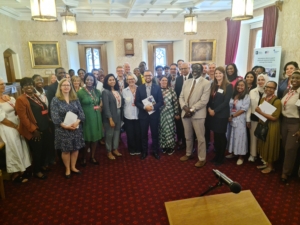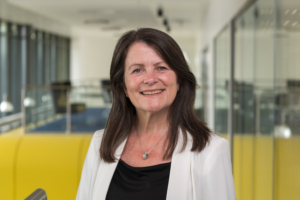The potential for positive social, economic, and environmental outcomes
Reaching net zero emissions is a priority national policy, with an internationally agreed goal in place for the UK to meet this objective by 2050. Achieving this goal will require research, innovation, and collaboration across the country.
Each university within Midlands Innovation agreed to allocate some of their allotted Policy Support Funding (PSF) to an Inclusive Transformation project. Through this funding, collaborative projects between academics from schools in the Social Sciences, Arts, and Humanities have used this seed-funding to develop ideas that have the potential for positive social, economic, and/or environmental outcomes.
Co-creating with partners
One such project is focused on the pressing issue of transitioning to net zero governance within the regional context of the Midlands. Led by Dr Philip Catney in partnership with academics from the Universities of Leicester and Nottingham, the PSF was used to undertake research in this area, considering the context of lived experiences of communities confronting energy poverty and precarity. Using the PSF, pilot events were launched to encourage engagement with key stakeholders and adopt a ‘mini-public’ approach across Coventry, Nottingham, Leicester and Staffordshire, including local councils, non-profit organisations, and residents. Project leads were able to engage in discussion with stakeholders about their concerns regarding net zero governance and decarbonisation in the face of rising energy prices and economic insecurity.
A second strand of this work related to examining the potential for collaborative governance to enhance civic capacity in relation to energy retrofit of domestic housing in diverse places. The project team were keen to co-create their research through the lived-experience approach, emphasizing the personal experience of citizens affected by energy poverty and precarity.
Contributing solutions to national priorities
Since its development in the academic year 2021-22 with the allotted PSF of £7.5k, project leads have since put together larger-scale bids for a further £2 million to continue developing research into the specific challenges and opportunities of successfully becoming net zero on a local level within the Midlands.
Using the PSF, the project has also been able to continue engagement with civic leaders and organisations within the region, leading to the publication of case studies and published papers. The team are also currently preparing a bid for new funding to continue the exploration and impact of the research findings generated.
The PSF has been crucial in allowing this research to develop and grow, encouraging academics from across universities and disciplines to contribute solutions towards national priorities.






